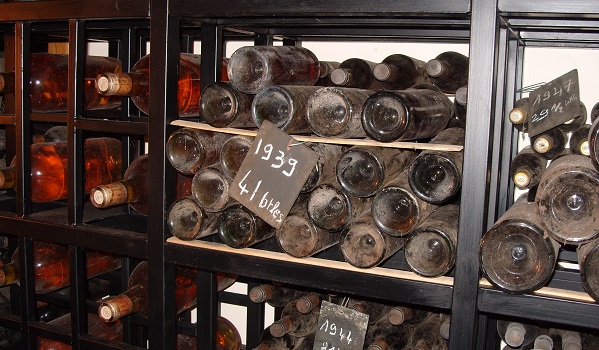How to cope with the heat by drinking wine
Which wines are best for the summer season and how can we enjoy them anywhere?

In our article How to cope with the heat by drinking wine we explained which wines are the most suitable for the summer season and how to serve them at the right temperature. We were left with the part of how to preserve them, although these tips can be useful not only for the summer, but for the whole year. Let's start with the right location, in other words the characteristics that our " homemade wine cellar" should have.
Where in a house can these conditions be met? A garage or an underground cellar where there is no direct sunlight can be suitable locations as long as they meet the conditions described above. If we cannot achieve these conditions naturally in a house, there is always the option of acquiring a special fridge or cellar for wine preservation, which can be found on the market today in different sizes and prices.
It depends a lot on the type of wines we have in our personal cellar. Assuming that the storage conditions we saw in the previous section are met, we can give some general rules, applicable to many wines, albeit not suitable for all:
1. Young wines: they should generally be consumed within a maximum period of one year from the vintage that appears on the bottle. However, there are wines that, due to their high level of acidity, can be kept in perfect condition for longer. There are very fresh growing areas that allow us to play with time in the bottle, such as Rías Baixas.
2. Crianza wines: although it is not mathematical, opening the bottle no more than 5 years after the year indicated on the label will be safest.
3. Reserva and Gran Reserva: they can be kept between 10 and 15 years approximately after the harvest. However, there are winemakers who work on these wines with the aim of making them last much longer. There are Gran Reservas capable of lasting beyond 30, 40 or 50 years. The trick to these superwines lies in the winemaker and the vintage.

If we have many bottles in our cellar, it is better to keep a record of all the wines where we indicate details such as their ageing and date of purchase, so that we can consume each bottle at the most suitable moment. Many people buy more than 1 bottle of each wine so that they can open them from time to time and see how the wine evolves with each uncorking.
Once opened, regardless of the type of wine and if there is any liquid left in the bottle, the best thing to do is to keep it in the fridge corked with its original cork, and drink it as soon as possible as the wine will progressively lose its perfume with time. To improve preservation we can use a vacuum pump which can be found in any specialised shop. For sparkling wines, the old trick of placing a spoon in the neck of the bottle is useless, as the space left over does not prevent oxygen from entering the bottle or the carbon dioxide from escaping.
There is another option for drinking a glass of our favourite wine without opening the bottle, and thus preventing the oxidation process from accelerating, which is thanks to extraction systems such as the one presented by Coravin.
Which wines are best for the summer season and how can we enjoy them anywhere?
We have all had a relative with a cellar full of bottles, many of them forgotten. Since when is old age a value in wine?
At Peñín we are already focusing on the 2025 Guide, which begins its tasting tour this January to reach October with the most complete Guide to Spanish wines in the world.